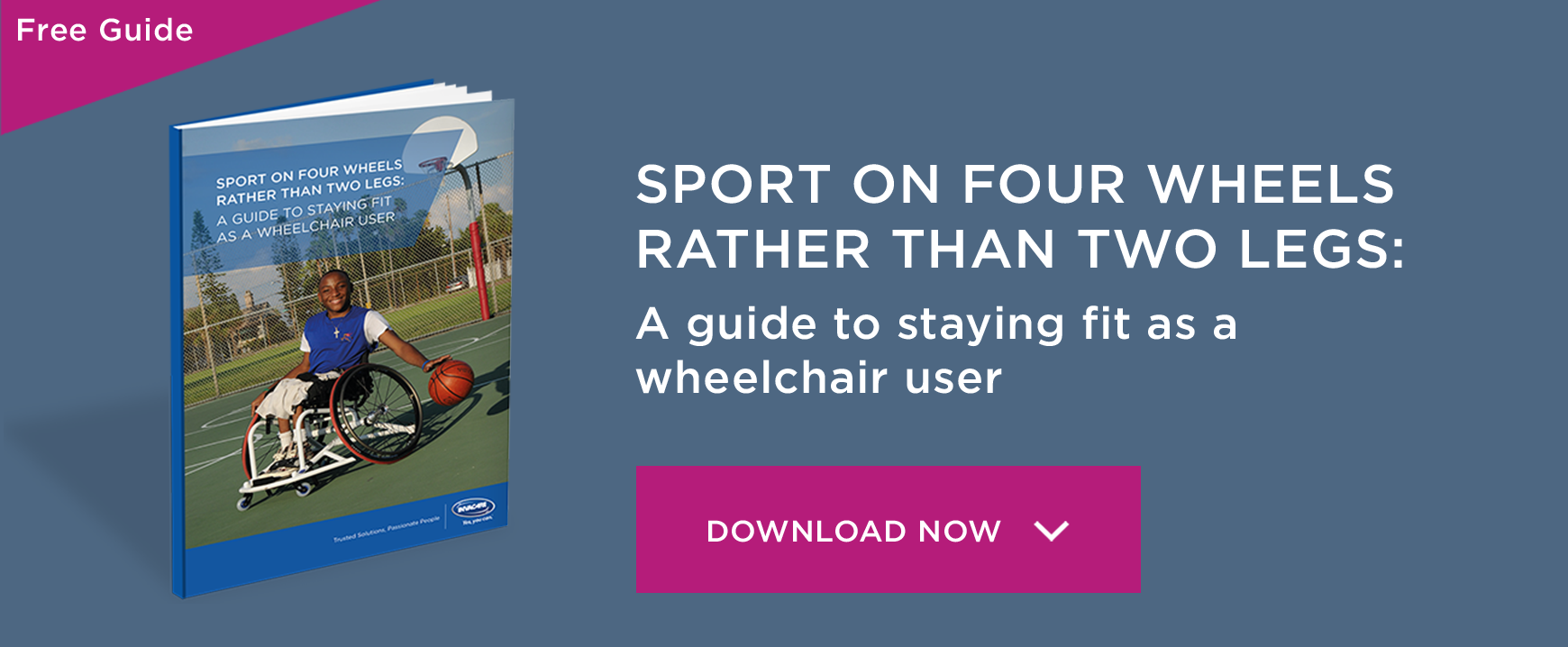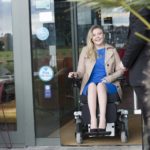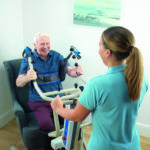Being Active Your Way: Exercise With Spinal Cord Injury

One small change, today.
Positive health is associated with a capacity to enjoy life and to withstand challenges; it is not merely the absence of disease. (CDC)
What are some of the benefits of being physically active every day?
Among the greatest benefits some individuals find is feeling stronger, more alive. Another is being less quickly fatigued and being better able to meet the physical demands of the environment.
For some, it is a way to be able to participate and have fun with friends and family. By improving positive health, the risk for chronic illnesses, such as stroke, heart attack, diabetes, cancer is decreased.
So what exactly is meant by “physical activity?”
Physical activity can be any form of movement or activity that uses energy and that, added to baseline activity, produces healthful benefits. (CDC)
According to the 2008 CDC guidelines: adults need at least 2 hours 30 minutes of moderate intensity aerobic exercise every week and muscle strengthening activities on two or more days a week that work all major muscle groups (legs, back, abdomen, chest, shoulders and arms).
Or they can do 1 hour 15 minutes of vigorous aerobic activity and two or more days a week of strengthening major muscle groups. Or a mix, noting that 1 min of vigorous activity is equivalent to 2 minutes of moderate activity.
The good news is that ten minutes at a time is fine. You do not have it do it all at once, but at least ten minutes at a time is recommended. (CDC)
People of all abilities can benefit from being physically active
According to the CDC adults with disabilities are three times more likely to have heart disease, stroke, diabetes, or cancer than adults without disabilities.
Nearly half of all adults with disabilities get no aerobic physical activity, an important health behavior to help avoid these chronic diseases.
Adults with mobility limitations are the least likely to get aerobic physical activity.
Regular aerobic exercise or activity can improve heart, and lung function, and health of blood vessels. Aerobic activity can include taking a dance class, wheelchair basketball, or wheeling oneself in a wheelchair for daily exercise.
For some, it may be doing light daily activities such as doing the laundry or cooking. It is considered “aerobic” as long as you are doing activities at a moderate or vigorous intensity, so you raise your heart rate or break a sweat. Once again, the good news is that 10 minutes at a time is fine. You do not have it do it all at once, but at least 10 minutes at a time is recommended. (CDC)
Being Active Your Way
If you are a person with a disability, you can engage in regular health-enhancing physical activities based on your abilities. For example, swimming, water exercise, routinely wheeling oneself in a wheelchair, upper body stationary cycling, wheelchair sports.
The main thing is to avoid inactivity. You can talk with your healthcare professional such as your doctor, physiotherapist, health coach and others, to provide guidance for both aerobic activities and muscle strengthening exercises.
They will help you be active in ways that are appropriate for your abilities. They can also provide guidance to help you progress slowly and avoid injury.
Changing one simple behavior can be the turnkey that will affect other behaviors.
That may be simply deciding to do a few minutes of exercise every morning instead of sleeping in. Or you might start with other healthy and stress-reducing habits, like meditating before bedtime. It may even be keeping a journal with words or pictures Or you can find a creative outlet that you enjoy.
Perhaps you might encourage another person to join you. Just one small change today can help chart a new course. Then you will be well on your way to being active, your way, for life. What are some reasons you might like to be more healthy and active? What is holding you back?
Autorh: Susan Bessey, PT, DPT, MCWC (Master Certified Wellness Coach) is a physiotherapist therapist from Charlotte, NC. She specializes in health, wellness, and fitness








